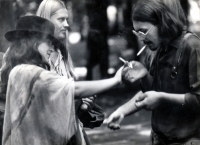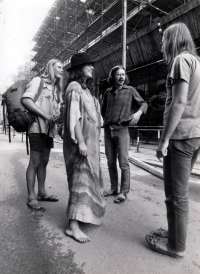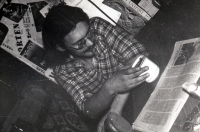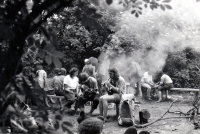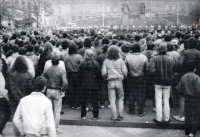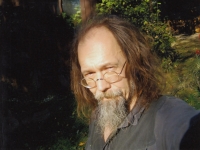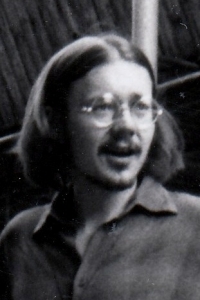We must preserve freedom all the time
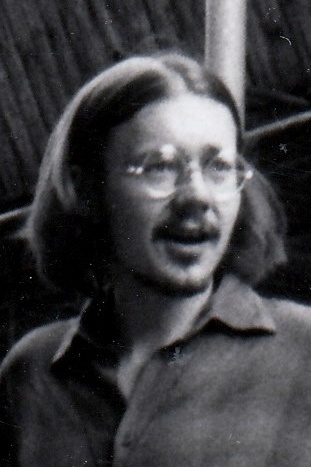
Download image
Petr Melichar was born on 30 March 1967 in Karviná and grew up in Havířov. His father was an electrician on the shaft, later he was a teacher at a vocational school, earning a living as a bar musician. Mother was selling sporting goods. After being expelled from high school, he trained as a locksmith, mechanic and repairer of machines and equipment. At the age of eighteen he went to Prague. He worked as a cleaner at the Main Station and then in the Book Wholesale Boiler Room in New Town. He was in contact with dissidents and chartists, obtaining samizdat magazines, books and anti-regime petitions from them. At the end of the 1980s he produced his own illegal magazine named Cloth with his friends from Havířov. He was regularly detained and interrogated by the state police, kept as a hostile person in the archives. After November 1989, he briefly joined the activities of the Civic Forum in Havířov. He is a holder of an anti-communist resistance certificate. At the time of the interview Petr Melichar lived in Těrlicko and worked as a porter and night watchman.
